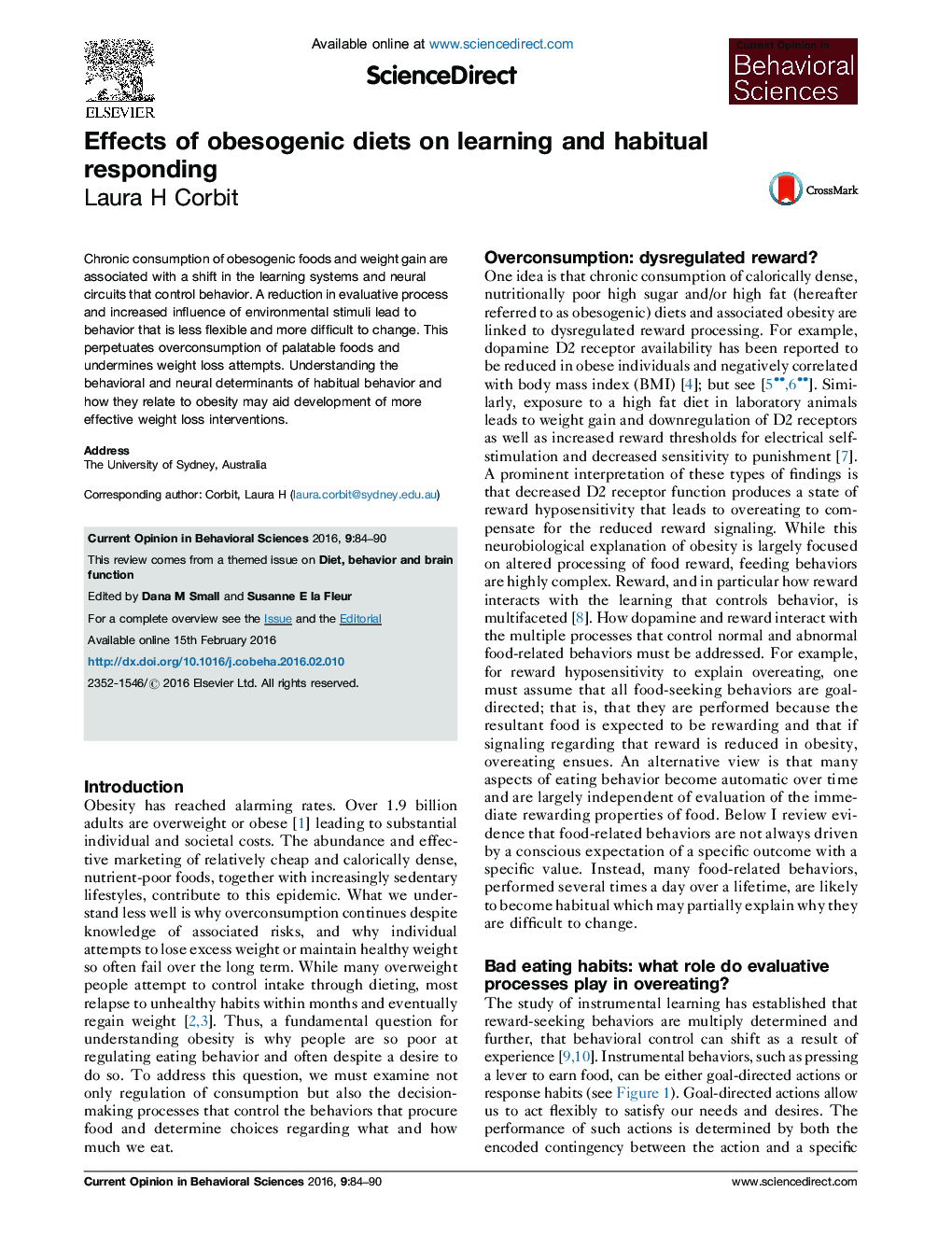| Article ID | Journal | Published Year | Pages | File Type |
|---|---|---|---|---|
| 6260601 | Current Opinion in Behavioral Sciences | 2016 | 7 Pages |
â¢Chronic intake of high sugar/high fat diets promotes habitual food-seeking behavior.â¢Food-related stimuli may drive food-seeking and consumption in the absence of hunger.â¢Habitual control is accompanied by a shift in activity of parallel striatal circuits.â¢Obesity is associated with changes in striatal dopamine and opiate receptor function.â¢Recognizing when food-related behaviors are habitual may direct better treatment.
Chronic consumption of obesogenic foods and weight gain are associated with a shift in the learning systems and neural circuits that control behavior. A reduction in evaluative process and increased influence of environmental stimuli lead to behavior that is less flexible and more difficult to change. This perpetuates overconsumption of palatable foods and undermines weight loss attempts. Understanding the behavioral and neural determinants of habitual behavior and how they relate to obesity may aid development of more effective weight loss interventions.
